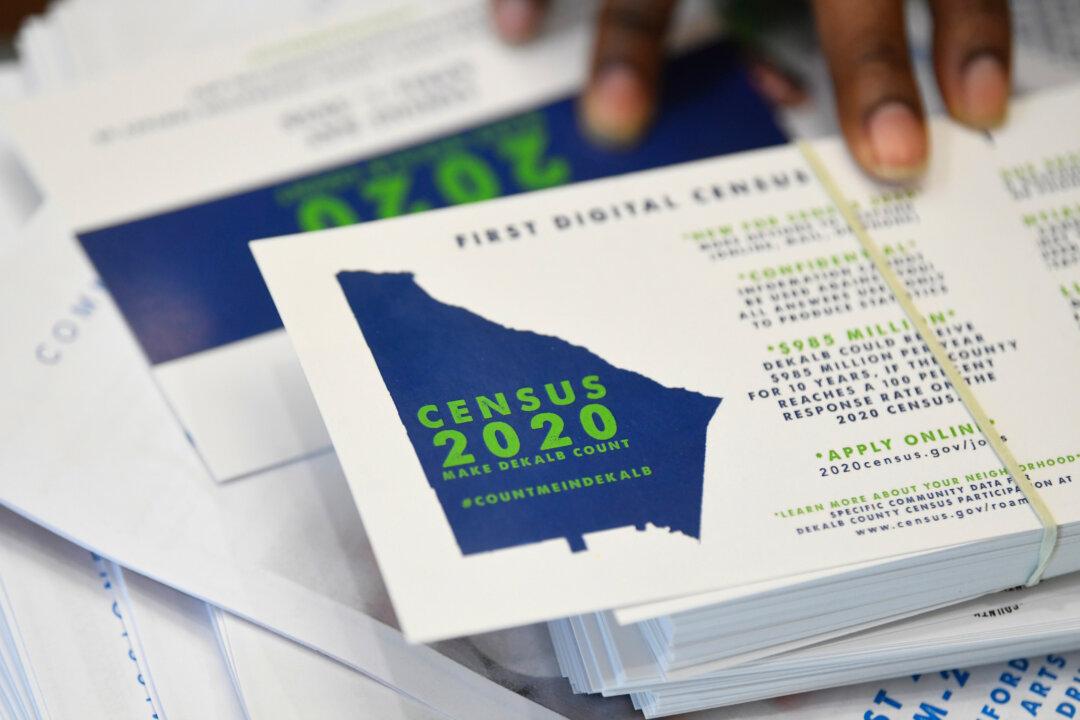A federal judge ruled on Thursday that 2020 Census counting can continue through Oct. 31, blocking the Trump administration’s end-of-September deadline.
Judge Lucy Koh, ruling in the U.S. District Court for the Northern District of California, issued a preliminary injunction in the case, arguing in the decision documentation (pdf) that a shortened schedule would have an adverse impact on political representation and the distribution of federal funding.





